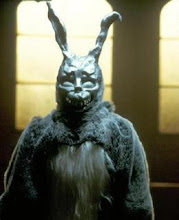Cormac McCarthy’s book The Road considers what would happen if the world lost its biosphere, and the only living creatures were humans, hunting for food among the dead wood and soot. Some years before the action begins, the protagonist hears the last birds passing over, "their half-muted crankings miles above where they circled the earth as senselessly as insects trooping the rim of a bowl." McCarthy makes no claim that this is likely to occur, but merely speculates about the consequences.
All pre-existing social codes soon collapse and are replaced with organised butchery, then chaotic, blundering horror. What else are the survivors to do?: the only remaining resource is human. It is hard to see how this could happen during humanity’s time on earth, even by means of the nuclear winter McCarthy proposes. But his thought experiment exposes the one terrible fact to which our technological hubris blinds us: our dependence on biological production remains absolute. Civilisation is just a russeting on the skin of the biosphere, never immune from being rubbed against the sleeve of environmental change.
This is the book's power - when the sun is blotted out and the plants stop growing, everything begins to die. The film carries that same bleak vision - other than the few remaining people, you only see two other living things in the film. There is also small, but hugely significant scene where the father (Viggo Mortensen) is looking thought the tiny collection of bits and bobs his son carries with him - among them is a stone-age arrow head. A premonition of where our hubris may lead us. The rapid decent of humanity to utter barbarity also have echoes of John Gray's writings on politics - that human rights are not cumulative and must ever be defended. But the biggest message seared into your brain by the film is of a world where the environment is shattered utterly. Totally. The old man they encounter is a lost prophet, "I know this was coming. The signs were there." He declares, "But most people thought it was a hoax." The warning signs are there...
There is little to reassure us in a world where the future is going to be so unlike the past – indeed, we are now entering a new geological era, in which the major chemical cycles of carbon, water and nitrogen have all been altered immeasurably by human activity. How far will we have to push these planetary stresses for cracks to appear in our modern civilisation, and for the evil within us all to tear once more across the land? ... If we ever do push the planet so far that the majority of the human race is left without food or water in uninhabitable areas, what will it feel like to be one of the starving millions? Initially we might all come together in adversity, in a kind of global blitz spirit. McCarthy admits this possibility: at first, others had "come to help" the survivors. But "within a year there were fires on the ridges and deranged chanting. The screams of the murdered. By day, the dead impaled on spikes along the road." We won't stay united for long.
How can anyone prepare for this kind of outcome? Over the years, [Mark Lynas, author on global warming, has] received many emails from people asking where they might need to set up home if runaway global warming begins. New Zealand, perhaps? Norway? I'm sure all the questioners share the same survivalist fantasy, the one where they take their family into the hills and survive on a small farmstead, stockpiling rice and baked beans and keeping a loaded rifle by the well-guarded front door. The Road exposes even this limited comfort as being futile: sooner or later the ammunition will run out, the pounding on the door will begin to splinter away the hinges, and the ravening, faceless horde will pour in. If the worst happens the truth is that there is nowhere to hide, and the road itself will offer no comforts. Of that we can be certain.
The only thing the film missed was the narration of the last paragraph of the book - it's not a plot twist at all, but a hunting lament who's meaning is left to the reader to interpret...
"Once there were brook trout in the streams in the mountains. You could see them standing in the amber current where the white edges of their fins wimpled softly in the flow. They smelled of moss in your hand. Polished and muscular and torsional. On their backs were vermiculate patterns that were maps of the world in its becoming. Maps and mazes. Of a thing which could not be put back. Not be made right again. In the deep glens where they lived all things were older than man and they hummed of mystery."


No comments:
Post a Comment